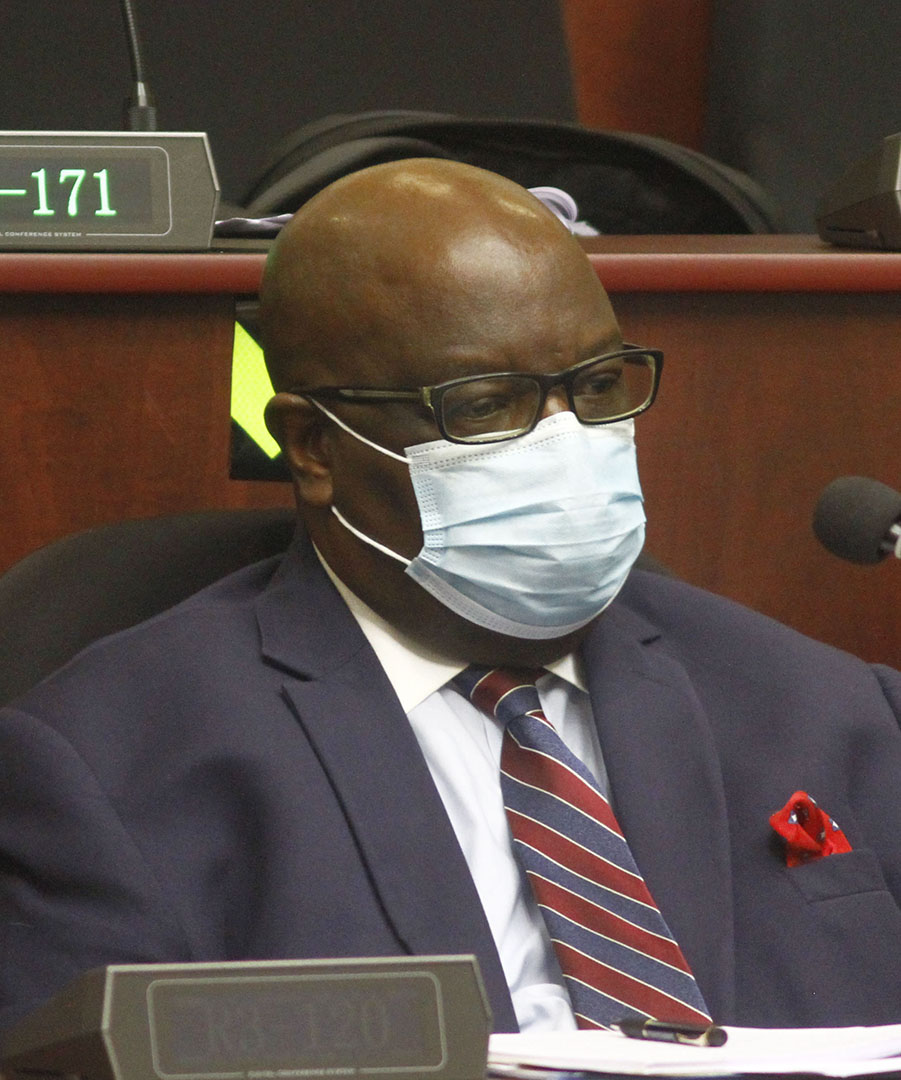Stakeholders yesterday used a Local Content consultation – primarily focused on the oil and gas industry – to request that government legislate for easier access to financing especially for small to medium size enterprises (SMEs).
“We have cases where companies have a contract but the requirement of collateral from banking institutions is hampering private sector development,” Director of ExxonMobil’s Centre for Business Development, Natasha Gaskin-Peters told the forum.
She explained that as Guyana’s economy changes all aspects must evolve and transform.

Leyland Lucas, of the University of Guyana’s School of Entrepreneur-ship and Business Development, suggested a restructuring of Guyana finance system.
According to Lucas if new businesses are not receiving the needed resources in the current financing framework there is a need to expand the finance system not just in terms of the number of institutions but in terms of the funding options available,
He suggested that Guyana must find ways to embrace options such as venture capitalism and angel investing within the local market.
Timothy Tucker of the Georgetown Chamber of Commerce and Industry (GCCI) went one step forward and questioned whether government as one of the largest direct spenders in Guyana would commit to investing in SMEs as part of local content.
“In the policy scope, context and drivers it is noted that government is one of the largest direct spenders…so does the Local Content Policy address government spending? Will government spending have a local content to it? We would like to see that,” he said while also requesting an explanation of how the recently passed Small Business (Amendment) Bill relates to the proposed local content policy.

Vice President of the Georgetown Chamber of Commerce and Industry
Tucker reminded that the previous iterations of the Bill indicated that SMEs would be guaranteed 20% of government procurement.
His questions were tabled within the context of comments made by President Irfaan Ali who stress-ed that the Local Content Policy (LCP) is not a static policy applicable only to the Oil and Gas Sector.
Addressing those gathered at the Arthur Chung Conference Centre (ACCC) Ali stressed that the policy will evolve as Guyana develops. The LCP, he maintained will be a living, flexible and responsive document.
“If you are under the mistaken belief that local content is about oil and gas alone, then we’ll be commencing the development of this document from the wrong perspective. Whilst the Oil and Gas Sector would be one that will be critically targeted in a local content strategy, the local content strategy is an overarching strategy that will cover every single sector of our development as a country,” he stated.
The President repeatedly noted that the policy will focus on all sectors including the insurance industry, banking sector and the development of manufacturing and industrial capacity.
Also slated to be addressed is a regularization of rentals and training and development not only in oil and gas but in other emerging industries.
“Building capacity of local companies and giving then the capability to become globally competitive so that our business environment can become globally competitive,” is the goal Ali explained while noting that government has tasked itself with building the stable macro-economic framework necessary for this to be achieved.
The government will also improve the ease of doing business, enhance the efficiency of government institutions and bring better legislation.
Limited capacity
Vice President Bharrat Jagdeo who chaired the discussions explained that while it is understood that there is limited capacity in Guyana in some sectors the policy must force companies in the sector to act differently.
He stressed that a new model Production Sharing Agreement (PSA) is essential to the inculcation of local content in oil and gas.
“We cannot develop a sector where the bulk of benefit rebound to the investor…Guyanese must share in this prosperity…the current PSA is stacked in favour of the oil and gas companies,” the Vice President stated, adding that there will however not be unrealistic expectations but “fairness and equity”.
The last model PSA was developed under the 2011-15 PPP/C administration. Both this government and the previous one have been flayed for not seeking improvements to the 2016 PSA with ExxonMobil and its partners.
A specific example of necessary fair business practice Jagdeo mentioned relates to the credit policy of larger companies.
Small companies he explained cannot extend 90 days credit to larger companies for goods and service provided.
“We have to have a payment system evolving where goods and services below a certain threshold have a different payment schedule, maybe 30 days. The big companies, sub-contractors with healthy credit ratings and deep pockets can afford to do that. Small companies cannot,” he said.
The consultations which will continue at least for the next month are expected among other things to define “local content”.
Currently the draft policy notes that a definition of local content “should be clear and take into account the realities of Guyana including the available local expertise in Guyana’s diaspora.”
Most of the high tier petroleum engineering and other technical jobs are taken by non-nationals as this country lacks the skillsets needed for this task. And while oil was discovered over five years ago, it is unclear when many of the technical jobs and specialist procurement opportunities will be taken up by locals.
“This Strategy and Implementation Plan should be developed to identify actions and timelines to deliver the Policy objectives. It is recommended that the Strategy cover a 5-year period and address details on critical issues such as (the) distinction between a locally registered company and a Guyanese company,” the document states. As an example, it said that specific criteria should be established to determine whether a company qualifies as a Guyanese company and emphasized that such a workforce must show that at least 50-70 percent are locals.
“It is recommended that the criteria include the following, the company must be over 51% beneficially owned by Guyanese, the company’s head office must be located in Guyana and a certain percentage (50-70) of workforce must be Guyanese,” it said.
“The Strategy should identify both the demand side and supply side and how it impacts on local content and local capacity building. It should also establish key performance indicators. Consideration should be given to measures such as mandatory procurement targets where appropriate and aspirational targets otherwise, and where specific sectors and categories can be reserved for Guyanese,” it added.





